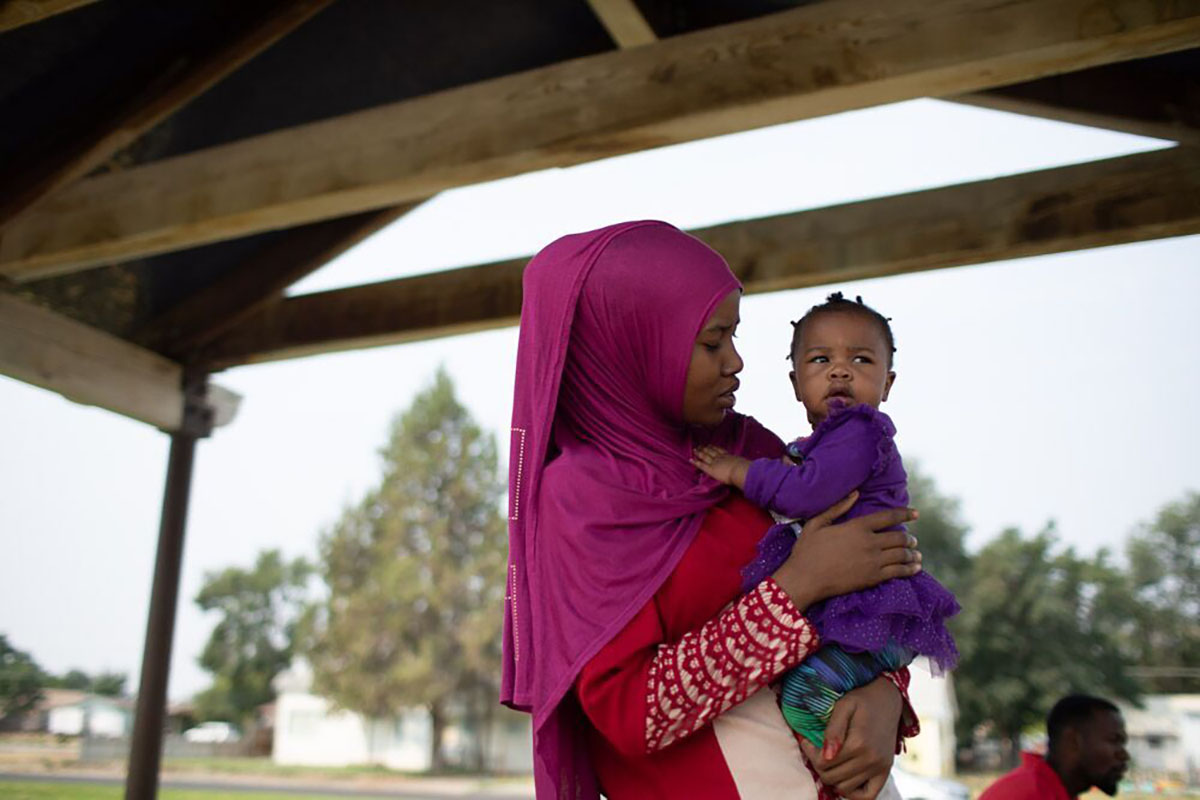Abdikadir Abdi’s childhood looked strikingly different from what his own children and the Somali refugee community’s children experience in the Pacific Northwest today.
Abdi was born in the Somali capital, Mogadishu, sometime around 1988 at the onset of the ongoing Somali Civil War. His family is from a tribe of farmers, coined the Somali Bantu by humanitarian aid agencies in the early 1990s. After losing its ancestral lands over two centuries ago, the tribe faced severe persecution and violence, and its members were sometimes forced to join armed Somali rebel militias.
“We come from Somalia, but we don’t have land,” he said. “We (couldn’t) because there was a tribe problem. So, we ran away and suffered a lot. Not us as much as our parents, but people would come into your house and would fire. My older brother died when we were (running away) on the road. He got shot in his chest and was bloody, and then animals ate him.”
Abdi was about 4 when he saw his older brother get killed around the age of 12. Because his family was always fleeing, its members don’t know their exact birthdates; many of them, including Abdi, share the same birthday of Jan. 1. His mother and father took their remaining five children to a refugee camp in Kenya, where he lived for several years.
Then, in 1999, the United States announced a plan to resettle Somali Bantu within their borders, which was formalized in 2001. Abdi and his family packed up and headed to Kakuma, their new refugee camp home. The process, which was significantly slowed by the Sept. 11 attacks, took seven years to complete. He was 14 when his family arrived in Boise, Idaho.
Although they were safe, the school transition was particularly tough for Abdi and his younger siblings.
“I had depression from back home,” said Abdi, who recalled that his parents couldn’t do much to help. “They don’t read or write, and they (didn’t) understand what we were learning.”
What they needed most was some additional support.
“We didn’t have that kind of help, and still people’s children don’t have help when they go home,” he said. “That’s what my mom and dad had to do, but I won’t do the same for my children. I want to change my life and my children’s and a lot of people’s. That’s my dream. Not even getting paid.”
FURTHER READING: Planet Portland: Personal journeys of local immigrants and refugees
Living through immense struggles and seeing his own family’s need for assistance sparked Abdi’s desire to dedicate himself to helping those around him wholeheartedly. He spent part of his summer this year offering translation services through the Four Rivers Welcome Center as an employee of the Immigrant Refugee Community Organization. He was able to utilize his fluency in Swahili, which he learned while living in Kenya, as well as his region’s Somali dialect.
Abdi saw that opportunity as a vital learning experience and springboard for what he wants to do to further support the burgeoning Somali community in Ontario with his very own nonprofit one day.
FURTHER READING: Ontario, Oregon: A Section 8 pit stop turned long-term stay
He said the Welcome Center had a process he found problematic when trying to find employment for families seeking services.
One particular family he met was struggling because the grandmother became the foster mother of her grandchildren after their mother had to remain in Somalia. Now she’s raising several young children in the United States and doesn’t know how to drive or receive adequate welfare.
While the Welcome Center is there to help, its primary focus and grant funding is for translation services. The self-sufficiency grant funds are also restricted to benefiting refugees within five years of arrival, despite that on average, refugees are economically on par with their wider communities and are self-sufficient after about seven years, according to a 2017 data analysis by The Washington Post.
Abdi sees a great need for continued services well beyond those five or seven years.
“I want to stay here 10 or 15 years,” he said. “We like it here in Ontario, but the only problem is they don’t have a lot of resources. They don’t know what to do or where to go. We have to explain the benefits to them, and they need to understand what kind of help they need.”
He hopes to move to Ontario from Boise soon but is juggling the responsibilities of fatherhood, owning and managing the Broadway Taxi cab company in Boise, and completing a criminal justice program at the Treasure Valley Community College campus in Ontario. He looks forward to the future and all that he’ll do to make sure it’s filled with as much joy, recreation and kinship among the Somali community.
FURTHER READING: How a refugee in Ontario, Oregon, helps others get the aid they need



